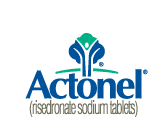WASHINGTON -- Postmenopausal women with osteoporosis can reduce their risk for fractures by 26% if they will adhere to their bisphosphonate regimens, Ethel Siris, M.D., reported in a poster presentation at an international symposium sponsored by the National Osteoporosis Foundation.
However, that "if" is a very big one, said Dr. Siris, director of the metabolic bone diseases program at Columbia University Medical Center, New York.
"We assume that there is a relationship between actually taking the drug and having a positive outcome, but it has not been previously demonstrated for bisphosphonate therapy," she said in her oral presentation.
In a retrospective study of 6,285 women, 48% of the participants were compliant in terms of refilling their prescriptions, and 21% were persistent in terms of staying on the medication beyond the 2-year follow-up.
Overall, the relative risk of fracture over a 2-year period was 26% lower among refill-compliant women, compared with noncompliant women (9.4% vs. 12.6%) and 21% lower among treatment persistent women, compared with nonpersistent women (9.1% vs. 11.6%).
More than half (52%) of the women in the study were noncompliant, based on insufficient refills, and approximately 21% were nonpersistent, defined as having a discontinuation of therapy within the 2-year period.
Data on the pharmaceutical claims of women aged 45 years and older who met the criteria for postmenopausal osteoporosis were taken from the Medstat MarketScan Research Database. The women had received at least one prescription for a bisphosphonate; 85% of them received alendronate (Fosamax) and 15% received risedronate (Actonel).
Although bisphosphonates are a popular choice for fracture risk reduction in osteoporotic women, the drugs' effectiveness depends on compliance over an extended period of time.
And compliance with bisphosphonate treatment is notoriously poor, doctors say. The currently approved daily dose must be taken while the patient is sitting or standing, immediately after waking in the morning. In addition, the patient must allow one hour before eating or drinking anything except water.
"If we actually get people to take these drugs, we might cut as many as 400,000 fractures in a given year," Dr. Siris said. Studies on less frequent dosing regimens, such as the once-monthly regimen for the newly approved ibandronate (Boniva), suggest they are effective and could actually improve compliance.
The need to improve adherence is obvious, given that the U.S. population as a whole averages 1.5 million osteoporotic fractures each year, Dr. Siris noted in her poster.
Dr. Siris serves as a consultant for and has received honoraria from drug manufacturers Eli Lilly & Co., Merck & Co., Sanofi Aventis, Procter and Gamble Pharmaceuticals, and Novartis.
BY HEIDI SPLETE
Senior Writer
COPYRIGHT 2005 International Medical News Group
COPYRIGHT 2005 Gale Group



